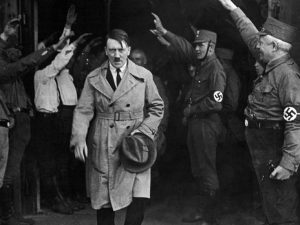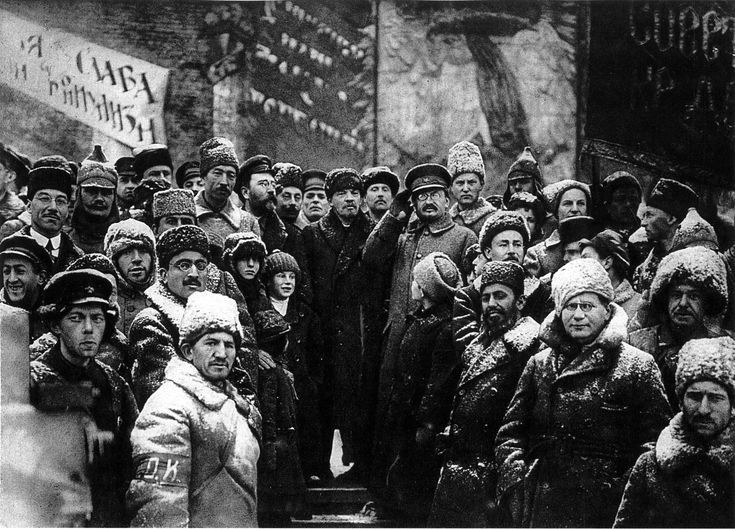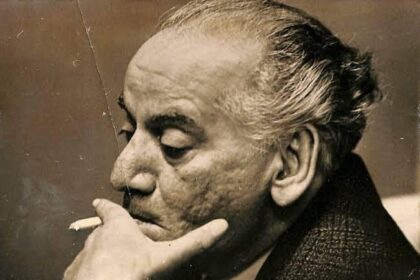When the world pushes a nation to its knees, it falters into desperation. It’s the situation where the people lose not only their hope but the will to struggle. At times like these, the nation gets desperate and clings to anything that helps it stand its ground against the odds. Often throughout history, reformers and adversaries alike have used this moment to bring about change on a large scale. They tend to appear as the solution to all the problems and act as the ‘destined’ Messiah who would save the people from their troubles. This unites the people and strengthens the nation. It’s like how a single person is not capable of causing much trouble, yet mobs are known for actions that have changed the course of history. The Messiah gives the people an aim, a direction, and above all, a sense of hope. More or less, it’s mostly based on fabricated words and lies, which, combined with the ulterior motives of the leader, lead mankind to the extent of barbarity and irrationalism.
The Role of Leadership and Blind Trust
Man is capable of doing great deeds, in both aspects: good and bad. And for the extremes of both, a certain amount of motivation and desire is required. The leader can lead to both good or bad. It is believed by many that a leader is necessary for doing great deeds. Though the concept itself is not wrong, the strong belief and faith in it have placed man at the mercy of his leader. Weak men throughout history have avoided the chance and choice to better themselves for a cause and thus put all their trust and hope in other people. This leads to whole nations being exploited.
Historical Example: Adolf Hitler and Nazi Germany

A very interesting example resonating with this would be that of Adolf Hitler of Nazi Germany. The historical perspective is that the German people were traumatized and desperate after the defeat they suffered in World War I. To give them an aim and hope, Hitler raised the ideas of Nazism and spread them throughout Germany. Now the people had hope that perhaps under Hitler, the righteous ruler of the great Aryan race, they would finally have bread and butter in their homes. It was partly true as well, because Hitler did in fact create a phantom economy supporting the people. But this had drawbacks and issues. The blind trust that the masses had put in Hitler led to them mindlessly executing innocents in the Holocaust. Several horrendous acts against the very core of fundamental human rights were committed. It was a grim era for the whole world.
The Current Situation and the Need for Change

Apart from the requirement of desperation, it is the charisma and the vision of the false Messiah that acts as his attraction. Hitler too had a vision, though it was not in the best interest of the world. It was the vision of a greater Germany that was free from the influence of other races and promised wealth, peace, and prosperity for the Nazis.
Years have passed, and yet the world is still a victim of this same thought process, and like cancer, it has grown and taken root in Pakistan as well. From the very first day that Pakistan was founded, it has been at the mercy of people who sought power but knew how to influence the people with vast promises. Blind faith in the leaders while disregarding facts and figures has led our nation into turmoil as well.
Whether it has been the military leadership, the Islamic revolutionaries, or the corrupt business tycoons, they have presented themselves as the Messiah who would save the country from all its problems. The paradox prevails: the leaders achieve their motives, and the common people suffer more and more. The economy wavers, and every few years later, we have an extremist group established causing problems in society.
Even to this day, it can be observed that people are still committed to their biased approach. They place their hope in some icon and will not take action for the changes they desire themselves. When exploited, they slander the leaders and blame them for all the crimes that they also had taken part in. It’s a tragic cycle.
The Path Forward: People as Their Own Savior

There is enough blood on the hands of the innocents. Daggers have been drawn against one another, and brothers have delved into feuds. Sectarianism and political rivalry are at their peak, and the country seems to be divided. At times like these, the country must move forward in a direction that is productive for all.
History has provided too many witnesses, and thus there exists an idea to resolve this issue as well. No man has the right to proclaim himself to be the hope of the people. It is the collective struggle of people who commit to change that creates tremors deep in the annals of history. Consequently, it is necessary for the people to be aware of this reality. But more or less, awareness is not the only thing required. People must act on their own, judge by their own judgment, and seek answers with their own curiosity. It’s high time that they stop waiting for the proclaimed Messiah and proceed to be their own savior. If nothing else, a man himself is his savior, for the grave does not hold two, and one will be answerable to himself and his Creator.













An excellent analysis of of past and present situation with very viable solutions to the problems of present era .we educated and knowledgeable. Weldone.